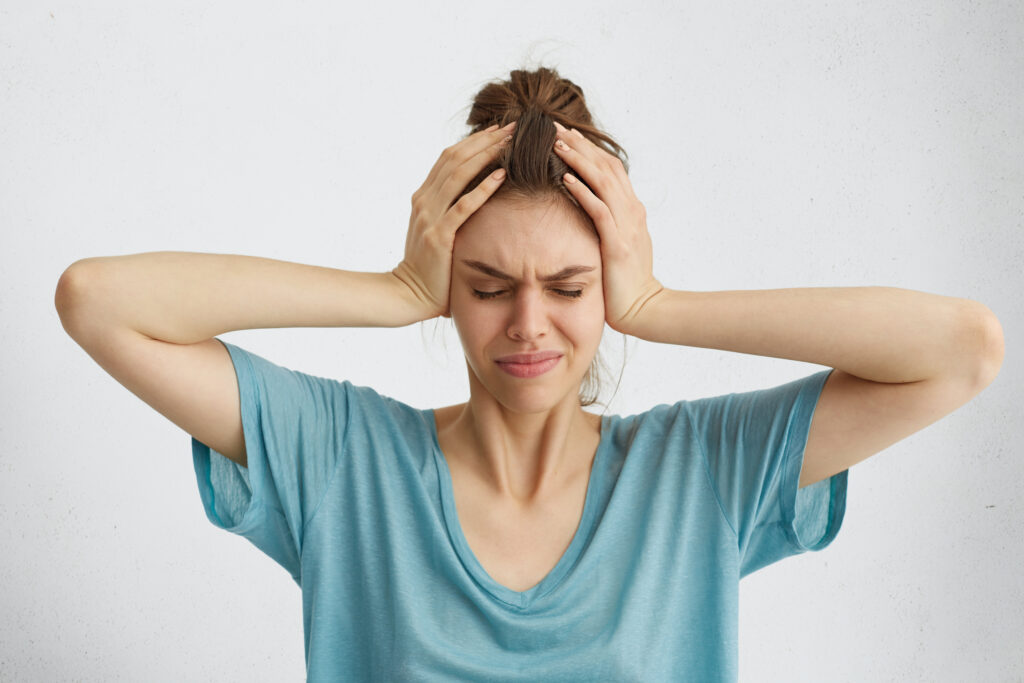Stress-related hair loss, among all the causes associated with hair fall, is a growing concern for different age groups, from children to adults, after genetics. Therefore, it is crucial to understand how stress causes hair fall, or hair thinning, and how to stop it with proven methods, and when to seek professional help to manage stress and hair falls.
Understanding Stress-Related Hair Loss-
The definition of stress-induced hair loss is still unknown. Because the visible hair loss is not an immediate aftereffect of stress. Basically, it is related to anxiety or emotional stress due to several reasons. In general, it’s ok if you notice a hundred strands of hair falling out daily. However, during a stressful situation, you may notice 300 to 400 hair strands fall out every day. Therefore, people don’t easily mark the hair loss pattern easily, and the underlying causes. But the question is, how can you find out whether the hair loss is due to stress? Let’s figure it out.
How Stress Causes Hair Loss?
Stress, especially emotional or psychological stress, and hair fall are closely related to each other through a biological mechanism. When you are in a chronic stressful situation, many hormonal changes occur in the body, including in hair follicles.
Here, the combined effect of Corticotropin-Releasing hormone and Cortisol, a type of stress hormone, affects the normal hair growth pattern. In this stage, the hair growth pattern comes to a resting phase, called the Telogen phase. Although it comes under the normal hair growth cycle, where the hair follicles come out via Eccrine Glands, located at the bottom of each hair follicle every 2 to 3 weeks, once the new hair is ready to grow.
However, if you notice there is no hair regrowth after 2 to 3 months of this phase, the stress-related hair fall can be found through three common varieties of hair loss patterns. Let’s discuss these conditions.
Types Of Stress-Induced Hair Loss Conditions?
- Telogen Effluvium- When you have gone through stressful events like divorce, forceful marriages, excessive weight loss, childbirth, serious health issues, or stop taking birth control pills, many patients often go through this type of hair loss, where around 70% of hair follicles come to the resting phase and never come out of the phase for 2 to 3 months.
- Alopecia Areata- An autoimmune disorder in which the body’s immune system stops producing Glucocorticoids, which fight against the stress hormone Cortisol. Patients can notice patchy hair loss in this condition.
- Trichotillomania- A hair-pulling disorder, also an autoimmune disorder, happens when a patient fails to manage stress. He/she rigorously pulled out their own hair continuously whenever they face a stressful event.
Evidence-Based Strategies to Manage Stress for Hair Health-
Luckily, the hair loss that occurred due to stress is temporary and can be managed by simple lifestyle changes and some relaxation techniques. Let’s discuss some proven tips for stress management for hair health.
- Meditation– You can try deep breathing, which helps in reducing cortisol hormone, the main culprit for stress-like hair loss conditions. A daily meditation habit can reduce stress levels and create a suitable environment for hair follicles to thrive.
- Balanced and Nutritious Diet- Eat eggs and cottage cheese for protein and biotin. Also, eat food items rich in Omega-3 Fatty acids, iron, zinc, calcium, vitamin A, D3, and B12.
- Basic Hair Care Practices- Try some gentle hair care practices like avoiding tight hairstyles, hair styling products, heat methods, chemical-rich shampoos, and products.
- Scalp Massage- Give a nice massage with natural oils like Virgin coconut oil, almond oil, pumpkin seed oil, etc. You can also add some carrier oils, like tea tree oil, to regular natural oils for a better effect.
- Keep hydrated- Drink lots of water or watery fruits every day to hydrate your scalp, which helps in essential nutrients rich in the hair follicles that will promote hair growth.
- Supplements- You can take some medicinal supplements like Minoxidil and Finasteride that promote hair regrowth.
When To Seek Professional Help to Prevent Hair Fall Due To Stress-

Despite all the strategies you have followed, mentioned above, if you notice the following signs, then it is a final call to seek professional help in your locality.
- More than a hundred strands of hair fall daily.
- Bald spots are increasing with time.
- Searching for a permanent hair loss control solution.
- Scalp irritation or persistent itching leading to a severe burning sensation.
- When your body hair starts falling out, so does your scalp hair.
- Persistent hair loss is affecting your emotional brain.
Conclusion-
Stress-related hair loss can happen to people of different age groups. However, it is a temporary condition, and can be managed through lifestyle modifications and hair care practices. However, if you have failed to manage your stress and want a permanent solution to prevent hair fall, consult Dalaapin Care– a leading hair restoration center in Bhubaneswar, Odisha.
With Dr. Vivek Bandari’s expert guide, you can achieve natural hair regrowth and conquer stress with proper lifestyle modifications. Because your hair is affected first when you are in a stressful situation, and therefore, hair care matters most.

